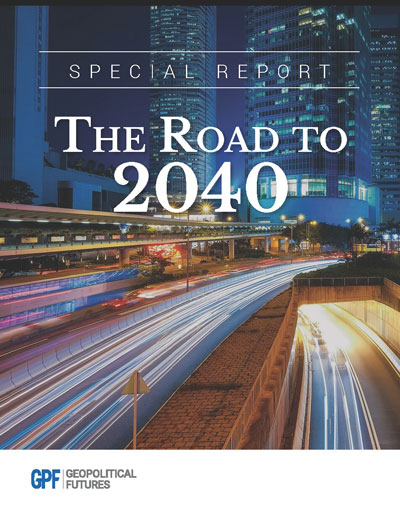For a third consecutive day, the world remained focused on France. A day after 10 French fighter jets bombed IS sites in the de facto IS capital of Raqqa, French President Francois Hollande declared to the Congress of the French Parliament in Versailles that “France is at war.” It is only the third time in France’s history that both the French National Assembly and the Senate were gathered into one body to hear a French President speak. Hollande also announced that a bill would come before parliament on Wednesday extending a state of emergency for three months and granting police additional investigative powers.
And yet while the world was busy parsing a defiant Hollande’s words and focusing its attention on the whereabouts of Abdelhamid Abaaoud, the alleged mastermind behind the coordinated IS attacks in Paris on Nov. 13, France fired a salvo at one of the European Union’s foundational principles. Citing anonymous diplomatic sources, the Telegraph reported that France plans to call for an effective suspension of the Schengen Agreement and the free movement of EU citizens within the European Union. France allegedly plans to do this at an emergency meeting of EU interior ministers to be held in Brussels on Friday.
The free movement of people in the EU has always been at the core of the European Union’s political project. The 1957 Treaty of Rome, which founded the European Economic Community, established that workers of any of the nations party to the treat could travel freely within the EEC. The Schengen Agreement, agreed to in 1985 by five members of the EEC, gradually abolished border controls between the states party to the agreement. The 1992 Treaty of Maastricht took this a step farther, creating the notion of European Union citizenship and attempting to facilitate the free movement of persons within EU member countries. By 1999, as a result of the Amsterdam Treaty, the Schengen Agreement’s free movement of people became the law of European Union land.
A suspension of the freedom of EU citizens to move within the union itself is a fundamental threat to the viability of the European Union. On the one hand, it is cognitively dissonant. If EU citizenship is to mean something, how is it possible that an EU citizen cannot travel within the EU itself? It would be as if, after the ratification of the U.S. constitution, the state of Georgia decided to prevent South Carolinians from entering its territory without a passport. No coherent nation with common citizenship can arise from such a reality.
But there is a deeper challenge, which is that if Schengen can be suspended as a result of the security concerns of a single member state, what is to stop other states from closing the borders when they feel their national interests are threatened? Once the borders are closed and controls are reintroduced, governments can control what comes in and what comes out of their countries. On the most basic level this means that European countries will be keeping potential terrorists out of their territory. Suddenly, when the incoming Polish European affairs minister says Poland will not abide by EU refugee quotas, his statement has a great deal more force.
But it also creates a precedent whereby each country is allowed to keep out whoever they want. What if a European nation decides it wants to keep Roma out of their borders? Or what if another nation decides it will refuse admittance to trucks from a company it believes is violating free trade agreements through illegal pricing? It is all well and good to think of borders as artificial lines drawn on a map, but when borders come with the principle and ability of a country to keep out the people and goods it wants, they became a powerful national tool. To take this thought to its logical conclusion, remember that at its core, the European Union is a trade agreement. Indeed, Germany depends on the European Union to provide it with a market for its exports. But the suspension of Schengen means that an EU member country can theoretically shut out German exports if it deems it prudent or necessary. Once a country can decide who enters, it can decide what enters as well.
The introduction of border controls is not a new phenomenon in Europe. Germany introduced border controls on the Austrian border Sept. 13, and Austria, Slovakia and the Netherlands all set up their own controls on Sept.14. Hungary has already completed building a fence on its border with Croatia to keep immigrants out, and even high-minded Sweden reinstated border controls Nov. 11.
But there is a difference between the ad hoc implementation of temporary controls in a crisis situation and France declaring that it intends to push for a suspension of the Schengen Agreement. France is no peripheral European state or comparatively small Central or Eastern European country. It is Germany’s only true peer within the European Union. And even if the suspension of the Schengen Agreement is temporary, there is something qualitatively different between asking for a key part of the European Union’s law to be suspended and hastily instituting controls to handle an influx of tens of thousands of refugees simply out of need.
The ironic thing to note is that Germany itself was the country that began bending European Union laws in the first place. Back in August, Berlin decided Syrian refugees did not need to register within the country in which they entered the EU, flaunting previous EU conventions. However, Germany now finds itself isolated in Europe and German Chancellor Angela Merkel is finding herself challenged in her own country. Merkel is doubling down on her open door migration policy, having told Bloomberg after the Paris attack that it was the duty of every European nation to offer Syrian refugees safe haven. She has faced criticism in recent days though. Markus Soeder, the finance minister of the German state of Bavaria, had strong words for Merkel even though their political parties are allies. Not only did Soeder say that Paris meant that German policy towards immigrants would have to change; Soeder even went so far as to say that Bavaria would have to guard its own borders if Berlin proved incapable of doing so.
Many German politicians have come to Merkel’s defense, but the fact remains that even within Germany there is dissension about how to address the immigrant situation within the context of the European Union. IS has threatened more attacks in Europe itself, and if the tragic events that occurred in Paris Nov. 13 had happened in Berlin, it might be Germany that felt a need to reinstitute border controls across the European Union or risk further attacks. It’s impossible to know but not unrealistic. One well-planned attack in Paris was enough to change fundamentally France’s approach to the situation. It may not take many more for it to convince all of the EU member states of France’s reported position.
It may very well be that the leak to the Telegraph about threatening to raise the Schengen issue is meant for a political purpose besides actually suspending the free movement of peoples. There is admittedly something strange about France declaring it is at war and facing the most horrific attack on French soil since World War II and waiting a full week to convene a minister’s meeting to address the situation. Perhaps France wants to put Merkel on notice that her position is untenable and France could make Germany pay dearly for it if Berlin does not take into account the security concerns of its neighbor.
Even so, that France would threaten such a foundational reality of the European Union is evidence of just what a paradigmatic shift has occurred in Europe since Nov. 13. Already reeling from the Greek financial crisis and the influx of hundreds of thousands of refugees, Europe now faces a security crisis unlike anything it has experienced in recent memory. It was difficult enough for the European Union to weather previous European crises because of the divergent interests of its member states in times of peace. Now, France is at war and will stop at nothing to defend itself. Now, controls have sprung up on the borders of multiple countries theoretically party to EU law. Many will try to minimize the importance of potentially suspending Schengen or of these border controls and checkpoints – it is only for jihadists, or for those with criminal records, or for those violating EU trade rules. That ignores the most salient point from the Telegraph’s story: that when existential issues are at stake, Europe wakes from its transnational dream and discovers that it has been a continent of distinct and mutually exclusive nations all along.





 The Road to 2040
The Road to 2040